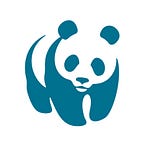Talking traceability: dialogue can help solve illegal fishing
By Michele Kuruc, WWF-US Vice President, Marine Policy
The global fisheries sector is a complex web of people, vessels, companies, and organizations spread across many countries and operating under different authorities and jurisdictions. Illegal, unregulated, and unreported (IUU) fishing practices, and the resulting products entering the global seafood market, drive overfishing, threaten ocean ecosystems and put food security for many communities around the world at risk. IUU fishing has also been tied to human rights abuses and other crimes.
Because fish is such a widely traded commodity, these issues desperately need to be solved at a global level if we aim to protect the environment and support sustainable development.
Current programs to address IUU fishing are complex — tracing a fish from the sea until it arrives at its final port is not easy. It means changes across the fishing industry, including standardizing data collection and moving away from paper records to digital formats. This will require expanding existing technology at all levels, from local fisheries to importers.
Providing a forum to share lessons becomes all-important for organizations and governments with existing programs to combat IUU, and those considering designing and implementing new ones. My team at WWF, along with the Henry L. Stimson Center and NOAA, decided to open an international dialogue through a collaborative technical workshop that was designed to exchange candid and practical information about traceability programs.
Sharing solutions to address IUU fishing is vital, but can be difficult for governments and industry leaders to talk about. (The “I,” remember, stands for illegal.) So we wanted to create an informal environment that would encourage participants to talk freely and frankly about the hard issues they must confront to solve IUU fishing and integrate transparent data collection through supply chains. We also wanted to hear any and all ideas about what could be done better. As a result, participants representing governments from across the globe, industries responsible for complying with regulation and NGOs concerned about the environment were all engaged.
A clear priority emerged: make it easier to collect information and share it in a universally understandable way. WWF and many other participants recognized the need for data standards and highlighted the value of all speaking the same data language.
As Sally Yozell, Senior Fellow and Director of the Environmental Security Program at the Stimson Center noted, “Being able to track seafood throughout the global seafood supply chain from where it is caught to when it enters the market will advance the international fight against illegal fishing and seafood fraud. No one wants to unknowingly purchase or consume seafood that is illegally caught, comes from an unmanaged fishery, or is harvested using forced labor.”
Data sharing must also be followed up by maximizing the utility of the information to even the playing field for all involved in the fisheries supply chain, and when appropriate, using it to enforce legal requirements. Making these changes will help protect the incredible biodiversity of our oceans as well as the livelihoods of the hundreds of millions of people dependent on fisheries.
Alexa Cole, Director of NOAA Fisheries Office of International Affairs, Trade, and Commerce said, “In combating IUU fishing, we can’t rely on any single tool, we must utilize the variety of resources at our disposal. Traceability is an important tool for maintaining the safety of our seafood, deterring illegal practices, verifying sustainability, ensuring products are caught legally, and are not misrepresented.”
I was encouraged by this unparalleled exchange of ideas, and the opportunity to learn how colleagues around the world are and will address IUU fishing. There are promising programs in development, and it is heartening that attendees are motivated to work toward change to secure livelihoods and biodiversity. Overall, there was a great sense of willingness to improve and listen to the other representatives’ varied perspectives. I look forward to more opportunities for open dialogue in the future and hope other collaborations are spurred on as a result of this foundation.
